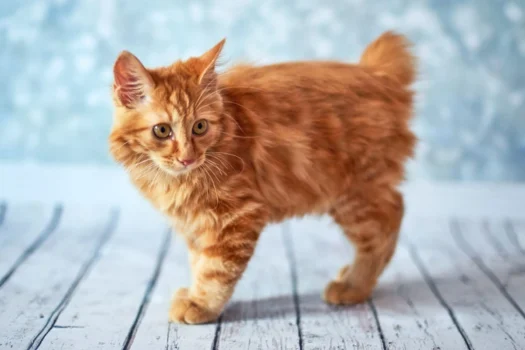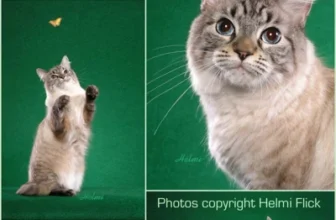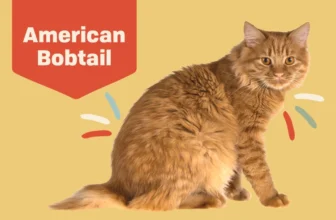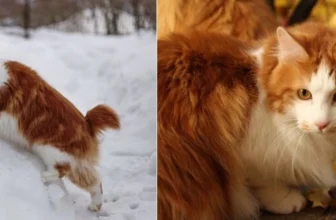Have you ever wondered why some American Bobtail cats are more outgoing than others? Or why some are calmer while others can be quite playful? As cat owners, we love to observe the distinct personalities and behaviors of our furry friends. In recent years, there has been growing interest in understanding how genetics plays a role in feline personality traits, including those of American Bobtails. This article will explore the fascinating connection between genetics and American Bobtail personality traits, including the unique factors that make these cats stand out, the role of nature vs. nurture in shaping their personalities, and how selective breeding can influence their traits. Additionally, we’ll examine the current research on predicting personality traits through genetics and the challenges that come with it. So, let’s dive in to gain a deeper understanding of what makes our feline friends so unique.
Overview of American Bobtails
American Bobtails are known for their unique appearance and charming personalities. They have a distinct wild appearance with their short, bobbed tails and sturdy bodies that resemble those of their wildcat ancestors. These cats have a muscular body, round eyes, and a distinctively short tail that is straight, slightly curved, or have kinks in them.
American Bobtails have a playful and outgoing personality and are known to be affectionate and loyal. They love interacting with their humans and enjoy being petted and cuddled. However, it’s important to note that their personalities can vary based on factors such as socialization and upbringing.
To ensure that American Bobtails develop the best possible personalities, it’s essential to socialize them from a young age. Early socialization helps them become more comfortable around people, other pets, and new experiences. By exposing them to different situations and handling them positively, American Bobtails can become confident and well-adjusted cats.
It’s also crucial for their owners to learn to recognize their body language, as this helps them understand their moods and preferences better. Understanding the cues your American Bobtail gives can help you create a stronger bond and help you develop a deeper understanding of them.
Additionally, there are specific bonding tips that can help build the relationship between an American Bobtail and its owner. The bond with their humans, coupled with early socialization, can help them develop strong and loving personalities.
While American Bobtails are mostly known for their affectionate and playful nature, there are instances of aggressive behavior that can arise. Recognizing these behaviors and correcting them in a positive way is crucial in maintaining a healthy and happy relationship with your cat. Knowing how to recognize the signs of aggression and calm your cat in such situations can help prevent future occurrences.
American Bobtails are a unique breed with fascinating personalities that are heavily influenced by their genetics and environment. By understanding the traits that make this breed special and taking the necessary steps to socialize and bond with them, you can ensure that they grow into loving and well-rounded companions.
Importance of Understanding Personality Traits
Understanding personality traits in American Bobtails is crucial for cat owners, breeders, and researchers alike. Every cat has its own unique personality, and it’s important to understand the individual traits that make up the entire personality of a cat. Personality traits can affect the cat’s socialization with other animals and humans, as well as their habits, preferences, and happiness.
Understanding personality traits is essential for cat breeders since they can selectively breed cats to possess specific traits. Knowing which traits are passed down through genetics and which ones are influenced by the environment can help breeders create a line of cats with desirable temperaments and personalities.
Another reason why understanding personality traits in American Bobtails is important is that it can help cat owners recognize traits that may be indicative of certain health conditions. For instance, an unusually anxious or aggressive cat might be displaying symptoms of an underlying medical condition or painful injury. Recognizing personality traits and changes in behavior can help owners identify potential health issues and seek medical attention for their cats.
Lastly, understanding American Bobtail personality traits can improve the bond between the cat and its owner. Knowing how to read and respond to a cat’s body language, recognizing signs of aggression, and socializing the cat from an early age can help create a strong bond between the cat and its owner. For example, implementing bonding tips can help strengthen the relationship between the cat and its owner, leading to a more fulfilling and enjoyable experience for both parties.
Understanding the personality traits of American Bobtails is crucial for cat owners, breeders, and researchers. The traits affect socialization, selective breeding, health, and owner-pet bonding. By understanding and responding to the traits, owners can create a healthy and happy living environment for their cats.
Linking Genetics and Personality Traits
Genetics and personality traits have been a topic of interest and research for many years. While it is widely accepted that both nature and nurture play a role in shaping an animal’s personality, the exact extent to which genetics is involved remains unclear. However, recent studies have shown that there is a definitive link between genetics and personality traits in American Bobtail cats.
Personality traits are determined by a combination of genetic and environmental factors. For instance, while genetics can determine an individual’s general temperament, its upbringing can influence its socialization skills, ability to learn and adapt, and overall behavioral tendencies. In the case of American Bobtails, genetics can determine various personality traits such as playfulness, friendliness, and loyalty, whereas environmental factors like socialization, positive reinforcement, and training can mold these traits into more favorable behaviors.
In addition to determining certain personality traits, it has also been found that genetics can influence how a cat responds to its environment. Researchers have identified various genetic markers that indicate sensitivity or tolerance to different stimuli, such as catnip or other odors. These genetic markers can also indicate a cat’s aggression levels, temperament, and overall disposition.
It is important to understand these genetic influences if you want to have a better relationship with your American Bobtail cat. For example, if your cat shows signs of aggression or fear around certain stimuli, understanding the genetic markers that cause those responses can help you avoid those situations in the future.
Genetics plays a critical role in shaping an American Bobtail cat’s personality. While the extent to which genetics affects an individual’s personality remains unclear, it is important to understand the potential impact of genetics on temperament and behavior. By utilizing this knowledge, cat owners can create an environment that promotes positive behaviors and reinforces favorable personality traits. For more information on how to promote positive behavior in American Bobtails, check out our articles on socialization, bonding tips, and recognizing aggressive behavior.
What Makes American Bobtails Unique?
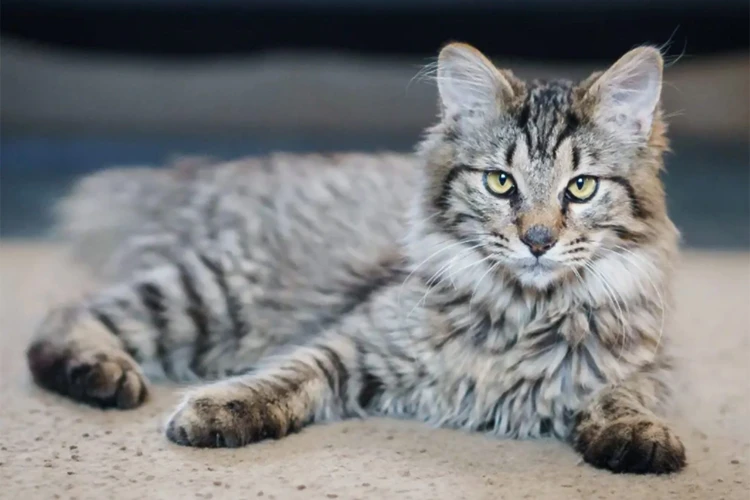
American Bobtails are a unique breed of cat that is known for its distinctively short tail, friendly personality, and intelligence. These cats are popular in the United States and are a cherished addition to any household. American Bobtails have become increasingly popular among cat lovers because of their unique appearance and charming personality.
The personality of an American Bobtail cat is not only influenced by its environment and surroundings but also by its genetics. Just like humans, cats inherit certain personality traits from their parents. American Bobtails have a genetic predisposition for being curious, playful, and friendly. They are also known for their intelligence and their ability to quickly learn new tricks and commands.
Aside from their short, distinctive tails, American Bobtails are also known for their unique coat patterns and colors. Interestingly, research has shown that there may be a connection between a cat’s appearance and its personality. For example, cats with darker coats are perceived to be more aloof and independent, while cats with lighter coats are seen as more friendly and outgoing. American Bobtails are often described as being friendly, outgoing, and approachable, which could be related to their unique appearance.
If you want to understand your American Bobtail better, it’s essential to read about their body language. Just like humans, cats also have different gestures and signify with their bodies. Understanding your cat’s body language will help you communicate with them better and create a deeper bond.
American Bobtails have a unique combination of genetic and physical traits that make them an interesting and appealing breed to cat lovers. Understanding their genetics and how it influences their personality can help you better appreciate these lovable felines.
The Genetic Factors Behind Personality Traits
When it comes to understanding personality traits in American Bobtails, genetics play a significant role. The genes inherited from their parents determine their temperament and behavior. Experts suggest that there are several genes responsible for controlling personality traits in most felines, including American Bobtails.
One such gene is the dopamine receptor gene. Studies have shown that felines with a certain variant of this gene may be more prone to aggression and other behavioral issues. Additionally, several other genes have been linked to specific personality traits in cats, including sociability, fearfulness, and affection.
It’s also essential to note that personality traits in American Bobtails are inherited from both parents. Understanding both the mother and father’s personality can help breeders predict the offspring’s temperament to a certain extent.
However, genetics aren’t the only factors at play when it comes to personality traits. Environmental factors, such as socialization and experiences, can also influence a cat’s behavior. It’s crucial to provide an appropriate environment for American Bobtails to ensure they develop the desired personality traits.
The Connection Between Appearance and Personality
It may seem like a far-fetched idea that an American Bobtail’s unique appearance can have a direct correlation to their personality traits, but research suggests that there may indeed be a connection. Interestingly, some American Bobtails have a distinct bobbed tail, while others have a tail that is longer than usual. This physical trait alone can signify certain personality traits.
For example, American Bobtails with bobbed tails are typically more active and playful than those with longer tails. This can be attributed to the fact that their tails are genetically “shortened,” which affects their overall skeletal structure and brings about a higher energy level. On the other hand, American Bobtails with longer tails are thought to be more independent and reserved, taking their time to observe their surroundings and think things through.
Further supporting the idea of a connection between appearance and personality, American Bobtails with distinct coat patterns are also thought to have unique personalities. For instance, an American Bobtail with a “wild” coat pattern, such as a spotted or striped coat, is believed to be more curious and adventurous than those with solid coats.
These theories are not limited to just American Bobtails – similar connections have been found in other cat breeds as well. Researchers believe that the genes responsible for certain physical traits, such as coat patterns and tail length, are also linked to the development of neural pathways and hormonal regulation, which can ultimately affect a cat’s personality.
It’s important to note that while there may be some connection between appearance and personality, this is not a hard and fast rule. Each American Bobtail, just like each human, is unique and can exhibit different personality traits regardless of physical appearance.
How Genetics Influence Personality Traits in American Bobtails
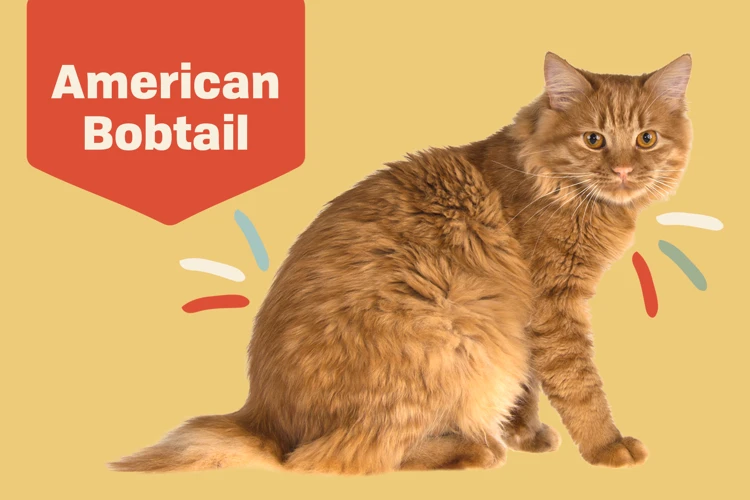
The role of genetics in shaping behavior and temperament is a field of study that has gained significant attention and importance in recent years. In the case of American Bobtails, their distinct personality traits can be attributed to both nature and nurture, with genetics playing a significant role in shaping their personalities.
The Role of Nature vs. Nurture: The nature versus nurture debate has been an ongoing one in the field of psychology, and it has implications in the field of animal behavior and genetics as well. While it is true that environmental factors such as upbringing, socialization, and training play a role in shaping personality traits, genetics also plays a critical role in determining personality traits in American Bobtails. This is because personality traits are not solely determined by a single gene, but rather multiple genes that interact with each other and with the environment to shape behavior.
Specific Personality Traits Influenced by Genetics: Cautiousness, friendliness, assertiveness, and playfulness are some of the most common personality traits found in American Bobtails. Research has demonstrated that these traits are influenced by a variety of genetic factors such as gene expression, epigenetics, and heritability. For example, studies have shown that a gene called Crataf, which is involved in the development of neural circuits, can influence a cat’s social behavior and interaction with humans.
The Connection Between Appearance and Personality: It is important to note that the physical appearance of American Bobtails can also be a predictor of their personality traits. For example, cats with more round faces tend to be friendlier and more sociable, while those with longer faces tend to be more independent and less likely to seek attention. Additionally, the coat color and pattern can also be indicative of certain personality traits, with black and white Bobtails being more assertive and adventurous, while silver and white Bobtails tend to be more laid back and introverted.
Genetics plays a significant role in shaping personality traits in American Bobtails. While it is true that environmental factors such as upbringing and socialization also play a role, genetic factors such as gene expression, epigenetics, and heritability can have a profound impact on a cat’s temperament and behavior. Understanding the influence of genetics on personality traits can allow breeders and owners to make informed decisions about the breeding and care of American Bobtails.
The Role of Nature vs. Nurture
The role of nature versus nurture is an age-old debate in the field of genetics that has been raging for decades. This topic looks at whether specific personality traits are determined by an individual’s genetic makeup (“nature”) or by their environment, including their upbringing and life experiences (“nurture”).
Research has shown that both nature and nurture play an essential role in the development of personality traits in American Bobtails. While certain traits, such as aggression or timidity, may have a genetic basis, an American Bobtail’s upbringing and surroundings can also greatly affect their behavior and demeanor.
In fact, studies have found that certain environments, such as those that are enriched with toys and interactive play, can significantly impact an American Bobtail’s personality traits. Additional research has shown that early socialization is vital for shaping an American Bobtail’s behavior and responses.
However, genetics still play a significant role in personality traits. Not only can specific genes impact an American Bobtail’s behavior, but some physical traits, such as their coat color, may also be tied to personality characteristics.
While there is still much to learn about the interplay between nature and nurture in American Bobtail personality traits, it is clear that both factors contribute to the unique traits and behaviors of these fascinating felines. Breeders and owners alike should be aware of the importance of both environmental factors and genetic predispositions when it comes to understanding and shaping an American Bobtail’s personality.
Specific Personality Traits Influenced by Genetics
Genetics play a significant role in determining the personality traits of American Bobtails. Some of the specific personality traits influenced by genetics include affectionate, loyal, intelligent, and playful. Cats with strong genetic predisposition to these traits are more likely to display them consistently throughout their lives.
American Bobtails with a genetic tendency towards affectionate behavior are known for their loving nature towards their owners. These cats enjoy close physical contact and are not afraid to express their love through snuggles and purrs. Similarly, those with a genetic tendency towards loyalty are fiercely committed to their owners, and will often follow them around the house.
Intelligence is another personality trait that is influenced by genetics in American Bobtails. Cats with a genetic predisposition to intelligence can be trained to perform various tricks and are quick learners. Additionally, they may display a problem-solving attitude and have a natural curiosity towards their surroundings.
American Bobtails with a genetic predisposition towards playfulness are known for their energetic and active personalities. These cats enjoy playing games, chasing toys, and exploring their environment. They are particularly suited to indoor environments where they can safely expend their abundant energy.
It’s important to note that while genetics play a key role in determining certain personality traits, it’s not the only factor at play. Environmental factors may also influence a cat’s behavior, such as the way they are raised or the experiences they have had since birth. For example, a cat with a strong genetic predisposition to loyalty may become less attached to their owner if they are consistently mistreated.
American Bobtails exhibit a range of personality traits that are influenced by genetics. Cats with a strong genetic predisposition towards affectionate behavior, loyalty, intelligence, and playfulness are more likely to exhibit these traits consistently throughout their lives. However, it’s important to remember that environmental factors also play a significant role in determining a cat’s behavior.
Understanding the Breeding Process
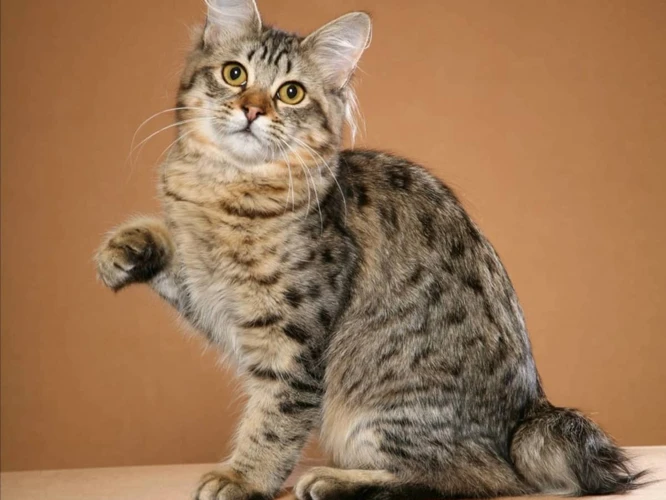
The breeding process for American Bobtails is a complex and carefully managed undertaking. Breeders have a responsibility to ensure that the health and welfare of the cats they breed are their top priority. Genetic testing plays a crucial role in the process, as it allows breeders to assess and identify risks for various health conditions.
Through selective breeding, breeders aim to improve the traits of the American Bobtail breed while minimizing any potential health risks that may be present. This means that breeders must carefully choose the cats they breed based on their personality, appearance, and genetic makeup.
It’s important to note that the breeding process is not without its challenges. One of the biggest difficulties facing breeders is the risk of inbreeding, which can lead to the expression of genetic disorders. To prevent this, many breeders use outcrossing, where a cat from a different breed is introduced into the breeding program. This helps to increase genetic diversity and minimize the risk of health issues caused by inbreeding.
In addition to managing the genetic health of the breed, breeders also strive to ensure that the personality traits of the American Bobtail are maintained or improved with each new generation. This requires careful observation and assessment of each cat’s temperament and behavior to ensure that only those cats with the desired personality traits are used for breeding.
The breeding process for American Bobtails is a meticulous and disciplined undertaking that takes into account every aspect of a cat’s genetic makeup and personality traits. Through careful selection and genetic testing, breeders are able to improve the health, appearance, and temperament of this unique and beloved breed.
Genetic Testing in Breeding Programs
Selective breeding programs focus on breeding American Bobtails with desirable personality traits. Genetic testing is an essential aspect of such programs as it allows breeders to identify cats that carry specific genes for those traits. Using DNA tests, breeders can determine which cats are more likely to pass on certain personality traits to their offspring. This approach significantly increases the chances of producing a litter with the desired set of temperament characteristics.
Genetic testing can also help identify potential health problems in American Bobtails that breeders should be aware of before breeding. Such tests can help eliminate any combinations of genes that could lead to significant health issues in future generations, thereby preventing the propagation of genetic disorders amongst the population.
Successful breeding programs require proper genetic testing, and as technology progresses, DNA testing has become more affordable and more accessible. Testing for a particular gene can currently cost as little as $50. With access to these DNA tests, breeders can create a plan for their breeding programs that focuses on reproducing cats with a specific set of personality traits that suit their needs.
It is essential to point out that genetic testing alone is not enough to create a successful breeding program. Informed breeders use the results of genetic tests in conjunction with observations of their cats’ behavior and temperament. Rather than breeding solely based on genetic testing, breeders use genetic tests to make their breeding decisions more informed.
Breeding decisions should be based on multiple factors, including temperament, physical health, and socialization. While genetic testing is an important aspect of breeding programs, it should not be the only determining factor. Ultimately, the best breeders focus on a combination of genetic testing and years of experience observing and working with their cats to produce the best possible litters of American Bobtails with desirable personality traits.
The Role of Selective Breeding in Personality Traits
Selective breeding is a practice that has been employed for centuries to create breeds with desirable physical and behavioral traits in animals. Breeders carefully select individuals with certain characteristics to mate and produce offspring that have those traits to a greater degree. The goal of selective breeding in American Bobtails is to maintain specific personality traits that are favorable and unique to this breed.
The American Bobtail’s playful and affectionate nature is one such trait that is highly prized by breeders. In order to maintain this personality trait, breeders carefully select cats with the desired personality characteristics to breed. These cats are usually those who demonstrate an outgoing and friendly nature, as well as a love for play and interaction with humans. Such traits are considered desirable in the offspring and are therefore encouraged through selective breeding practices.
However, selective breeding can also lead to negative consequences if not done properly. Overly aggressive or shy behavior can be amplified if breeders do not carefully select cats with balanced personalities. Inbreeding, a common side-effect of selective breeding, can also result in the manifestation of recessive traits, including those that may contribute to genetic disorders and diseases.
Despite these risks, many breeders consider selective breeding to be an important tool that allows for the preservation of desirable genetic traits in American Bobtails. By carefully selecting cats for breeding, breeders can maintain the breed’s playful and affectionate nature while minimizing the risk of negative traits being passed on to their offspring.
However, it is important to note that not all breeders follow best practices when it comes to selective breeding. This is why it is essential for potential American Bobtail owners to search for reputable breeders who prioritize the health and well-being of the cats in their breeding programs. By doing so, potential owners can increase the chances of adopting a healthy and well-tempered American Bobtail that is a joy to have in their home.
Can Personality Be Predicted Through Genetics?
The question of whether personality can be predicted through genetics is a complex one. While there is evidence to suggest that genes can play a role in personality traits, the field of genetics is still in its infancy when it comes to understanding the intricacies of personality.
Current Research on the Genetics of Personality Traits
There are several ongoing studies focusing on the genetics of personality traits in both humans and animals. For example, studies have found that certain genes may be associated with traits such as aggression, anxiety, and sociability. In American Bobtails, certain genes may be linked to their characteristic independent and affectionate personalities.
The Challenges of Predicting Personality Through Genetics
However, it is important to note that genetics is only one piece of the puzzle when it comes to personality. Other factors, such as environment and upbringing, can also play a significant role. Additionally, the relationship between genes and personality is complex and not fully understood.
Predicting personality traits through genetics is not foolproof. While certain genes may be linked to a certain trait, it is not always a guarantee that an individual will exhibit that trait. For example, two American Bobtails with the same genes may have completely different personalities due to the influence of environmental factors.
The field of genetic testing for personality traits is still relatively new, and many of the tests available are not yet fully validated or reliable. Thus, there is still a long way to go before it can be conclusively said that personality can be predicted through genetics.
Conclusion
While there is some evidence to suggest that genetics may play a role in determining personality traits, it is important to remember that personality is a complex and multi-faceted phenomenon. Genetics is only one of many factors that can influence personality, and even when a certain gene is linked to a certain trait, it is not a guarantee that an individual will exhibit that trait. As technology and research continue to advance, however, it is possible that we may one day be able to predict personality traits with greater accuracy through the study of genetics.
Current Research on the Genetics of Personality Traits
There is ongoing research around the role of genetics in shaping personality traits, not just in American Bobtails, but in all animals, including humans. A recent study published in the journal PLOS Genetics found that genetics account for up to half of the variation in personality traits, such as sociability and fearlessness, in domesticated dogs.
The research involved studying the DNA of 101 different dog breeds, including both purebreds and mixed breeds. The results showed that certain genes are strongly associated with specific personality traits. For example, one gene was linked to trainability, while another was associated with aggression towards strangers.
While this research is still in its early stages, it provides valuable insights into how genetics can influence personality traits. However, it’s important to note that genetics is just one piece of the puzzle when it comes to understanding personality. Environment, socialization and experiences also play a significant role in shaping an animal’s personality, including American Bobtails.
In addition to genetic research, there are also efforts to develop behavioral assessments and tests that can provide insight into an animal’s personality. These tests measure traits such as boldness, exploration and sociability, and can help breeders, shelters and adopters make informed decisions about a cat’s personality before bringing them into their homes.
Current research suggests that genetics do play a role in shaping personality traits, but it’s important to take a holistic approach when understanding an animal’s personality. Genetics, environment and experiences all work together to create a unique personality that make each American Bobtail special and irreplaceable.
The Challenges of Predicting Personality Through Genetics
While genetics play a significant role in shaping American Bobtails’ personalities, predicting personality traits through genetics poses certain challenges. One major challenge is the complexity of the genetic makeup of an individual. A single gene does not determine a specific personality trait, rather multiple genes interact with each other to produce a behavior or trait. Thus, identifying which genes contribute to a particular trait, and how they interact with each other, is a complicated process.
Environmental factors strongly influence the development and expression of personality traits. Factors such as socialization, early experiences, and learning can sometimes override genetic predispositions, making it difficult to predict how genes will express themselves in particular circumstances.
Another challenge is that there is no clear understanding of how different genes interact with each other to produce a behavior or a trait. While researchers have identified certain genes that potentially influence certain behavioral traits, the specific role of these genes in shaping personalities is yet to be fully understood.
Finally, current research into genetics and personality is still in its infancy. This means that there is still a long way to go towards developing a comprehensive understanding of the relationship between genetics and personality traits. Much of the research is also focused on humans, and it’s unclear how well the findings can be extrapolated to animals, including American Bobtails.
While genetics is an essential factor in the development of American Bobtails’ personalities, predicting personality traits through genetics is a complicated and challenging process. Environmental factors, the complexity of genetic makeup, and lack of knowledge of how genes interact, all contribute to making genetic prediction difficult. Nonetheless, continued research in this area holds promise for a deeper understanding of how genetics influence personality traits in American Bobtails and how this knowledge can be applied to enhance breeding programs.
Conclusion
After exploring the role of genetics in American Bobtail personality traits, it’s clear that genetics play an important role in determining the unique characteristics of these cats. While nurture also plays a part in shaping a cat’s personality, the genetic factors cannot be ignored.
Summarizing the Link Between Genetics and Personality Traits in American Bobtails
Genetics influence various aspects of a cat’s personality, from their level of activity to their tendency towards aggression or friendliness. Through selective breeding and genetic testing, breeders can work towards producing cats with desirable personality traits.
However, it’s important to note that predicting personality through genetics is still a challenge. While research has made strides in identifying certain genes that are linked to personality, there is still much to discover. Environmental factors, such as the cat’s upbringing, also play a role in shaping their personality.
In conclusion, understanding the genetics behind American Bobtail personality traits is essential for cat breeders and owners. By considering both genetics and environmental factors when choosing or raising a cat, a better understanding of their unique personality can be achieved.
Summarizing the Link Between Genetics and Personality Traits in American Bobtails
There is a clear link between genetics and personality traits in American Bobtails. Understanding the specific genetic factors that influence personality can be highly beneficial for breeders, researchers, and pet owners alike. By carefully selecting breeding pairs based on their genetic profiles, breeders can produce litters with more consistent and predictable personality traits.
However, it is important to note that genetics is only one factor in determining personality. Environmental factors and experiences can also play a significant role in shaping a cat’s personality. While genetics provide important insights into personality traits, it is not a foolproof method for predicting a cat’s behavior.
Current research on the genetics of personality traits in American Bobtails is ongoing, and there is still much to be learned about the intricate relationship between genetics and behavior. With further study and advancements in genetic testing, it may be possible in the future to predict a cat’s personality with greater accuracy.
Understanding the role of genetics in American Bobtail personality traits can aid breeders, owners, and researchers in developing a deeper appreciation for these unique and beloved cats. Through careful breeding and responsible ownership, we can ensure that future generations of American Bobtails continue to exhibit the desirable personality traits that make them such wonderful companions.
Frequently Asked Questions
What are some common personality traits of American Bobtails?
American Bobtails are known for their playful, affectionate, and intelligent personalities. They are also independent and curious.
Do genetics play a role in determining an American Bobtail’s personality?
Yes, genetics do play a significant role in determining an American Bobtail’s personality. Several genes influence different aspects of an American Bobtail’s temperament.
What are some specific genes that contribute to an American Bobtail’s personality?
Some specific genes that can influence an American Bobtail’s personality include the dopamine D4 receptor gene, the estrogen receptor alpha gene, and the monoamine oxidase A gene.
Can personality traits be altered through training or socialization?
Training and socialization can certainly have an impact on an American Bobtail’s personality. However, the underlying genetics that contribute to their temperament will always play a role.
How can breeding programs influence the personality traits of American Bobtails?
Breeding programs can selectively breed American Bobtails with desirable personality traits to increase the chances of producing offspring with similar temperaments. Genetic testing can also be incorporated to ensure certain traits are being passed down.
Is it possible to predict an American Bobtail’s personality based on their genetics?
Current research suggests that it may be possible to predict certain aspects of an American Bobtail’s personality based on their genetics. However, it is still a complex puzzle that requires further investigation.
What are some challenges of predicting personality through genetics?
One of the biggest challenges is the fact that multiple genes influence different aspects of an American Bobtail’s personality. Additionally, environmental factors and the role of chance can also impact their temperament.
Are there any downsides to selective breeding for personality traits in American Bobtails?
One potential downside is that focusing too heavily on one desired trait could lead to the neglect of other important aspects of an American Bobtail’s health and well-being.
Is there anything owners can do to ensure their American Bobtail has a well-rounded personality?
Owners can provide a stimulating and positive environment for their American Bobtail, with plenty of opportunities for socialization and mental stimulation. Consistent and positive reinforcement training can also help shape their behavior.
Can genetics explain every aspect of an American Bobtail’s personality?
No, genetics are not the only factor that influences an American Bobtail’s personality. Environmental factors, life experiences, and individual differences can also play a role in shaping their temperament.

